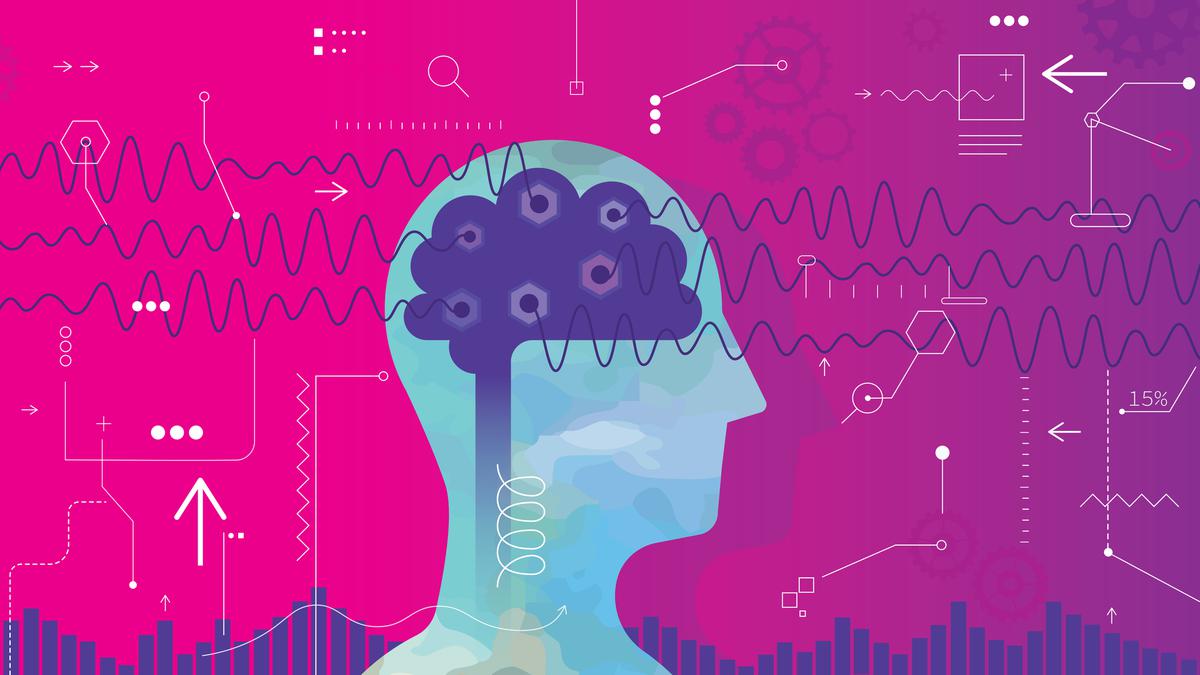- We live in a world when treatment is just a text away. Natural language processing (NLP), a subset of Artificial Intelligence (AI), allows computers to understand and interpret human language in a way that mimics human comprehension.
- In mental healthcare, we are already seeing a rapid expansion of AI use cases, including more economical therapy and greater clinician assistance.
Natural language processing (NLP)
- Natural Language Processing (NLP) is a subfield of artificial intelligence (AI) and computational linguistics that studies the interaction of computers and humans using natural language.
- The goal of NLP is to allow computers to perceive, interpret, and generate human language in a meaningful and useful manner.
How does this benefit patients?
- Privacy and Anonymity: These platforms provide privacy and anonymity, encouraging people to seek aid without fear of being judged or stigmatised.
- Support and Validation: Chatbots can help users reframe negative attitudes, validate their feelings, and give personalised care based on their requirements.
- Accessibility: Especially when human help is unavailable or inaccessible, virtual assistants provide quick assistance, potentially bridging the gap between patients and mental health care.
- Improved Health Outcomes: Research suggests that digital therapy tools can be as successful as in-person care in improving patient health outcomes, implying that chatbots can benefit mental health treatment.
- Continuity of Care: By providing ongoing support and resources, these tools assist patients in maintaining a comprehensive approach to their mental health treatment, potentially lowering the risk of relapse.
- Resource Pointers: Chatbots can link users to resources for dealing with various mental health issues, such as anguish, grief, and anxiety, allowing them to take proactive actions towards their own well-being.
- Scalability and Cost Effectiveness: Chatbots are scalable and cost-effective, allowing them to reach a large audience at any time, making mental health care more accessible to those who may not have access to traditional in-person treatments.
- Integrating chatbots into existing health programmes allows organisations to provide mental health treatment beyond traditional routes, ensuring that patients receive comprehensive care.
How does it benefit clinicians?
- Comprehensive Patient past: AI technologies can analyse large datasets, such as clinical notes, patient chats, neuroimages, and genetic data, to provide clinicians with a complete picture of a patient’s past. This saves time during sessions and ensures clinicians have access to all essential data.
- Predictive Capabilities: Recent advances in NLP programmes allow for the prediction of antidepressant and antipsychotic drug reactions by analysing a variety of data sources, including brain electrical activity, neuroimages, and clinical surveys. This predictive power enables clinicians to make better treatment decisions, lowering the chance of ineffective interventions.
- Streamlined Treatment Decisions: By offering insights into potential treatment outcomes, AI systems let clinicians customise interventions to each patient’s specific needs.
- E-triaging Systems: Some chatbots are developing e-triaging systems that can drastically reduce patient wait times while freeing up valuable clinical personnel hours. These systems prioritise patients depending on their level of urgency, ensuring that those who require emergency care receive it.
- Specialised Care for Severe Mental disorders: With increased bandwidth and the use of AI technologies, mental health clinicians can spend a greater amount of their time to severe mental disorders like bipolar disorder and schizophrenia, which require specialised care. This ensures that patients with complex needs get the care and assistance they need.
What happens next?
- Diverse Population-wide Datasets: To reduce biases, companies should refine their applications by using more diverse population-wide datasets. This assures that the technology is effective and fair to all users, regardless of demographics or qualities.
- Incorporating Comprehensive Health Indicators: AI programmes can use a broader collection of health indicators to give a more complete patient care experience. This includes combining data from diverse sources such as wearable devices, lifestyle factors, and social determinants of health.
- Conceptual frameworks must be used to guide the creation and improvement of these applications with the goal of improving health outcomes. These frameworks can help ensure that technology is in line with the goals of improving mental health and providing effective care.
- Rigorous Testing and Evaluation: These programmes’ effectiveness depends on continuous testing and evaluation. Companies must extensively test their applications to guarantee efficacy, safety, and conformity with worldwide standards.
- Governments and organisations must prioritise user safety and well-being by implementing global compliance norms. This includes legislation governing data privacy, security, and the ethical application of AI in healthcare.
- Updating Laws and Regulations: As AI applications in mental health expand, it is critical to update governing rules and regulations to keep up with technical breakthroughs while protecting users’ interests.
- Demanding higher standards of care: Patients, healthcare providers, and advocacy groups should all push for higher standards of treatment in mental health. This involves pushing for the implementation of AI-powered solutions in healthcare systems that prioritise patient well-being and improve health outcomes.
Conclusion
AI, particularly NLP, benefits mental health by allowing patients to have more privacy, personalised support, and efficient care. It enables doctors to provide effective, data-driven treatment by leveraging varied datasets and adhering to safety guidelines.
Source: https://www.thehindu.com/sci-tech/health/can-ai-help-in-navigating-mental-health/article67995754.ece#:~:text=Through%20text%2Dbased%20platforms%20and,the%20absence%20of%20human%20support.

